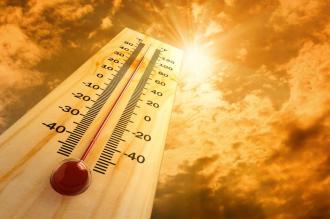News Taffy
| Post Your News Send Us An Event Start A Gallery |  |
| Most Recent | Most Popular | Top Contributors | Galleries | Events |
 | Contributor: admin subscribe to my stories |
 The Cardiologist's Wife - How to Handle Excessive Heat This Summer The weather this spring has been unusually pleasant for the most part with mild temperatures and few mosquitoes. However the heat and humidity slapped us in the face last week with August-like intensity. It probably caught a few people off guard, so I thought it was a good time to remind everyone to be safe in the heat. The Center for Disease Control reports an average of 658 deaths each year from heat stroke, so it is nothing to be taken lightly. It can take several days to acclimatize to hot weather so take it easy when starting to work or engage in physical training outside. Be sure to drink plenty of fluids including electrolyte drinks as necessary. These factors make you more vulnerable to heat stroke: sudden exposure to hot weather, a lack of air conditioning, certain medications like beta blockers or chronic conditions like heart or lung disease, age - being very young or elderly. Heat stroke can develop over several days by simply being in a hot environment (an unairconditioned house in hot, humid weather) that leads to a rise in body temperature. Exertional heatstroke is brought on by intense physical activity in hot weather. This can happen to anyone working outside in hot weather, especially if they aren’t used to it. Wearing extra or heavy clothing that prevents sweat from evaporating and cooling your body, drinking alcohol or not drinking enough water and becoming dehydrated can also bring on heat stroke. Heat exhaustion occurs when a person becomes dehydrated. You may notice the following symptoms: dizziness, fainting, fatigue, clammy skin, muscle cramps, dark colored urine (a sign of dehydration), or profuse sweating. Get the patient out of the heat and cooled off as soon as possible. Have them drink lots of water, take a cool shower, apply ice and sit in front of a fan. If the victim isn’t feeling better within 15 minutes, call for medical help as heat exhaustion can lead to heat stoke quickly. You should keep an eye on children playing sports as they sometimes don’t drink enough. Heat stroke has many of the same symptoms as heat exhaustion but the main sign of heat stroke is a high body temperature of 104 or more. Other signs are confusion, agitation, slurred speech, irritability, skin that is hot and dry to the touch, nausea and vomiting, flushed skin, rapid, shallow breathing, racing heart rate, seizures, a severe headache or loss of consciousness. Call 911 right away and take action to cool the person by moving them indoors or into the shade and removing extra clothes. While waiting for help, cool them any way you can, using a water hose, ice packs, fan or wiping with cold towels, especially the head, neck, groin and armpits. Heat can be just as deadly for your pets so keep an eye on them; make sure they have plenty of fresh water daily. Bring them in the house or keep them in the shade with a fan when the temps and humidity combine into double digits. Remember if it’s too hot for you to sit in the car, it’s too hot for them, even for “a few minutes”. [+] add comment |














